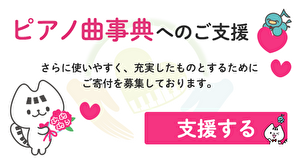
解説:須藤 英子 (1023文字)
更新日:2018年4月21日
解説:須藤 英子 (1023文字)
1925年、文豪・芥川龍之介の三男として東京に生まれる。2歳の時に自殺した父の遺品の中から、特にストラヴィンスキーの《火の鳥》 や《ペトルーシュカ》のレコードを愛聴し、やがて作曲家を志す。1943年、東京音楽学校(現 東京藝術大学)に入学。戦中期は橋本國彦に、戦 後は伊福部昭に作曲を師事した。
1949年、東京音楽学校研究科を修了。翌年、《交響管弦楽のための音楽》がNHK放送25 周年記念管弦楽懸賞に特賞入賞し、一躍注目を浴びる。1953年には、 《弦楽のためのトリプティーク》がカーネギー・ホールで初演されると共に、ワルシャワ音楽賞を受賞した。同年、 團伊玖磨、黛敏郎と「3人の会」を結成。管弦楽作品を中心に積極的に演奏会を開催し、戦後の作曲界を牽引した。1954年には、憧れのソビエト連邦にて、ショスタコーヴィチらを訪問している。
また「音楽はみんなのもの」という考えから、 1956年にアマチュアオーケストラ「新交響楽団」を創設。30年にわたり、指揮者として支援活動を行った。1977年以降は、NHK『音楽の広場』や『N響アワー』など音楽番組の司会者を務め、音楽の普及に尽くした。1981年には、日本音楽著作権協会の会長に就任し、著作権擁護運動に奔走。1982年には「反核・日 本の音楽家たち」を結成し、反核コンサートを実施するなど、多くの社会的活動を通して、日本の音楽界の発展に大きく貢献した。
初期の作風は、ピアノ曲《ラ・ダンス》(1948) にも見られるように、師・橋本譲りの都会的で粋な表現と、伊福部譲りの野性的なリズム・オ スティナートを特徴とする。50年代後半から60年代にかけては、《エローラ交響曲》(1958) やオペラ《ヒロシマのオルフェ》 (1967)など、 前衛的な響きを持つ作品を発表した。その後は、 チェロとオーケストラのための《コンツェルト・ オスティナート》 (1969)や、 《ラプソディ》 (1971) など、前衛の手法を生かしつつも、本来のしな やかさと軽やかさ、そして活力に満ちたオス ティナートを取り戻す。子どものためのピアノ 曲集《24の前奏曲》 (1979)には、それら芥川作品の魅力が余すところなく表現されている。 その他、映画音楽、童謡、ミュージカル、バレエ、合唱曲など、作品は多岐にわたる。
鳥井音楽賞、紫綬褒賞受賞。1989年、63歳で死去。翌年、その功績を称え「芥川作曲賞」 が創設された。
About composer : 須藤 英子
(2844 文字)
更新日:2018年4月21日
[開く]
About composer : 須藤 英子 (2844 文字)
Yasushi Akutagawa was born in Tokyo in 1925 as the third son of a great writer Ryunosuke Akutagawa. He loved to listen to the records of Igor Stravinsky’s “The Firebird” and “Petrushka” which belonged to his father who committed suicide when Akutagawa was two years old. From a very young age, he set his heart on becoming a composer. In 1943, he entered Tokyo Music School (currently named Tokyo National University of Arts), and studied composition with Kunihiko Hashimoto during the war and with Akira Ifukube after the war.
Akutagawa completed Tokyo Music School in 1949. During the following year, his “Music for Symphony Orchestra” won the Special Prize for Orchestral Works by NHK Celebrating Its 25th Anniversary, and he gained a lot of attention. In 1953, “Triptyque for String Orchestra” was premiered at Carnegie Hall and received the Warsaw Music Award. In the same year, he formed “Sannin no kai (Group of Three)” with Ikuma Dan and Toshirō Mayuzumi. The group actively had concerts, mainly for orchestral works, and became the motive power for the Japanese music world after the war. In 1954, Akutagawa visited Dmitri Shostakovich and other composers in the Soviet Union which he had yearned to do.
Akutagawa founded the amateur orchestra “New Symphony Orchestra” in 1956 from his idea that “music is for everyone”. He supported its activities as a conductor over 30 years. After 1977, he was devoted to spreading music as a host of TV programs such as NHK “Music Plaza” and “NHK Symphony Orchestra Hour”. In 1981 he took the post of president of Japanese Society for Rights of Authors, Composers and Publishers, and struggled with the copyright advocacy movement. In 1982, he formed “Antinuclear / Japanese Musicians” and hold antinuclear concerts. As above, he made a great contribution to the development of the Japanese music world through many social activities.
Akutagawa’s initial style was characterized by an urbanized and stylish expression like his teacher Hashimoto, and by a wild rhythmic ostinato like Ifukube, as seen in the piano piece “La Dance” (1948). From the late ’50s to the ’60s, he released avantgarde works such as “Ellora Symphony” (1958) and the Opera “Orpheus in Hiroshima” (1967). After that, he regained original softness, lightness, and vital ostinato while taking advantage of avant-garde techniques as seen in “Concerto Ostinato for Cello and Orchestra” (1969) and “Rhapsody” (1971). In the piano music collection for children “24 Preludes” (1979), you can see these musical charms a lot. He also wrote diverse works, such as film music, children’s songs, musicals, ballet music, choral music, etc.
Akutagawa received a Tori Music Award, and a Medal with Purple Ribbon. He died at the age of 63, in 1989. In the following year, “Akutagawa Composition Award” was founded to honor his achievements.
作品(15)
ピアノ独奏曲
子供のための作品 (7)

